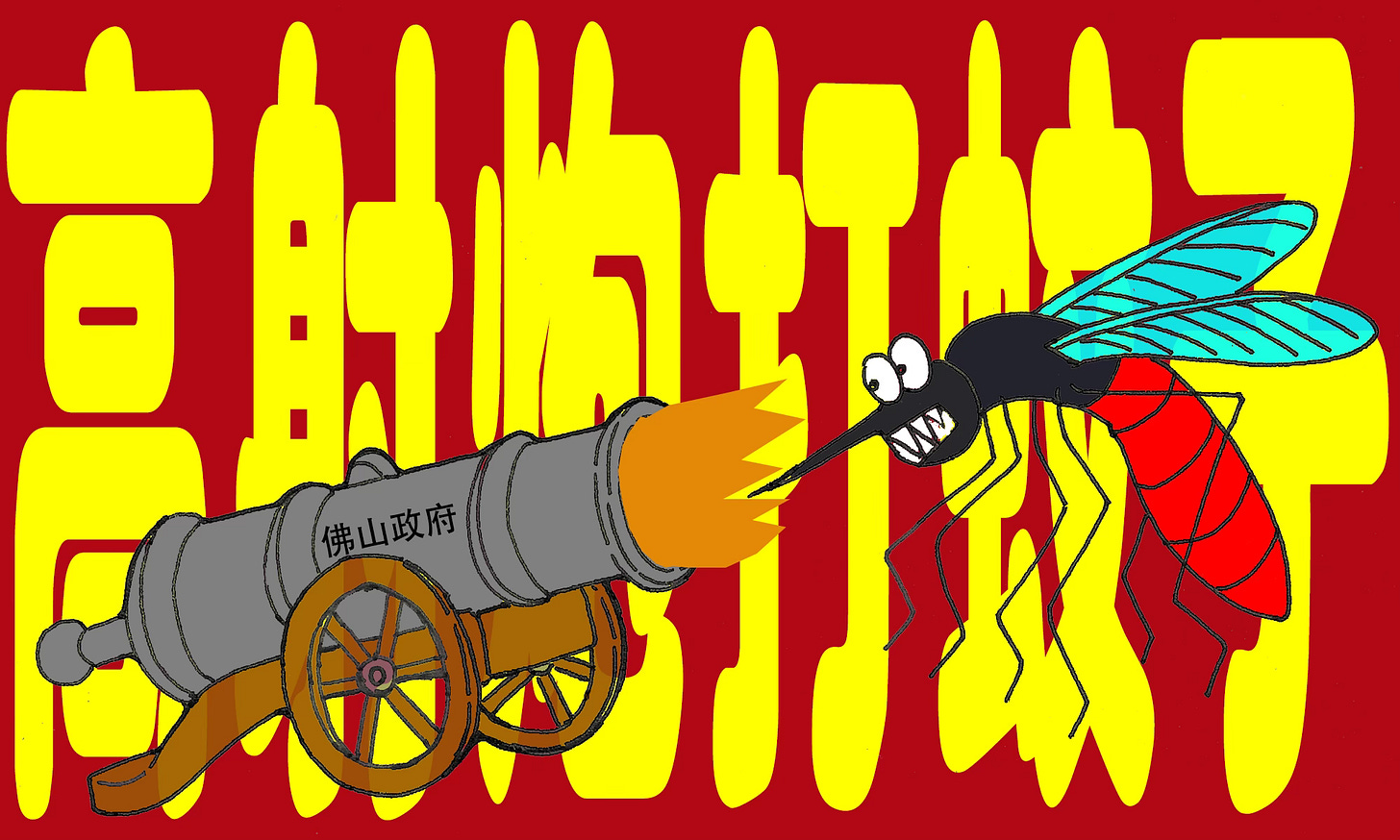"Using a cannon to kill a fly"— Phrase of the Week
Mosquito eradication efforts in Guangdong go too far

Our phrase of the week is: “using a cannon to kill a fly" (高射炮打蚊子 gāo shè pào dǎ wén zi)
Context
Guangdong province in southern China has been hit by a wave of chikungunya fever cases, with more than 10,000 people affected so far.
Chikungunya (in Chinese: 基孔肯雅热) is a mosquito-borne disease spread by being bitten by an infected insect. Symptoms include fever, muscle and joint pain, nausea and a rash. But it's rarely fatal.
The solution seems straightforward: eliminate mosquito breeding grounds — stagnant pools of water.
From around houses, on rooftops and terraces, in courtyards and gardens, in underground garages, and in parks and green spaces, the government has asked the people of Guangdong to leave no pools of water available for mosquitos to breed in.
But the implementation has gone to extremes.
Images have circulated online showing rooftop gardens with pot plants completely removed and pots smashed.
In some gardens and green spaces, trees have been cut down, and large diggers deployed to remove vegetation deemed "high risk" mosquito breeding sites:
Heavy machinery for mosquitoes? Brilliant strategy, just like using a cannon to kill a fly.
重型机械来灭蚊,真有种高射炮打蚊子的既视感。
zhòngxíng jīxiè lái mièwén, zhēn yǒu zhǒng gāoshèpào dǎ wénzi de jìshìgǎn.
And with that, we have our Sinica Phrase of the Week.
What it means
The phrase "using a cannon to kill a fly" directly translates as "using anti-aircraft guns" (高射炮) "to kill mosquitoes" (打蚊子).
It's a phrase known as a xiehouyu (歇后语), traditional two-part allegorical sayings where the first part sets up a vivid scenario and the second part delivers the punchline or meaning. The second part is often omitted but understood, a bit like a riddle or pun in English.
These sayings often have a humorous element, using absurd imagery to make their point.
The full two-part xiehouyu of this phrase is:
"Using a cannon to kill mosquitoes — what an overkill"
高射炮打蚊子——大材小用
gāoshèpào dǎ wénzi——dàcái xiǎoyòng
The second part literally means "big talent, small use" (大材小用), essentially using premium resources for minor tasks. This is also a four-character idiom which is commonly used in everyday Chinese.
Many xiehouyu developed organically through oral tradition rather than being coined by specific authors.
In this xiehouyu, the imagery of using anti-aircraft guns—military technology that became prominent in the 20th century—suggests this is a relatively modern creation compared to older traditional phrases which reference ancient stories or historical figures.
The phrase perfectly captures the absurdity of the current mosquito eradication methods in some parts of Guangdong.
Deploying enormous diggers to eliminate tiny insects?
That's overkill.
Andrew Methven is the author of RealTime Mandarin, a resource which helps you bridge the gap to real-world fluency in Mandarin, stay informed about China, and communicate with confidence—all through weekly immersion in real news. Subscribe for free here.
Read more about how this story is being discussed in the Chinese media in this week’s RealTime Mandarin.



